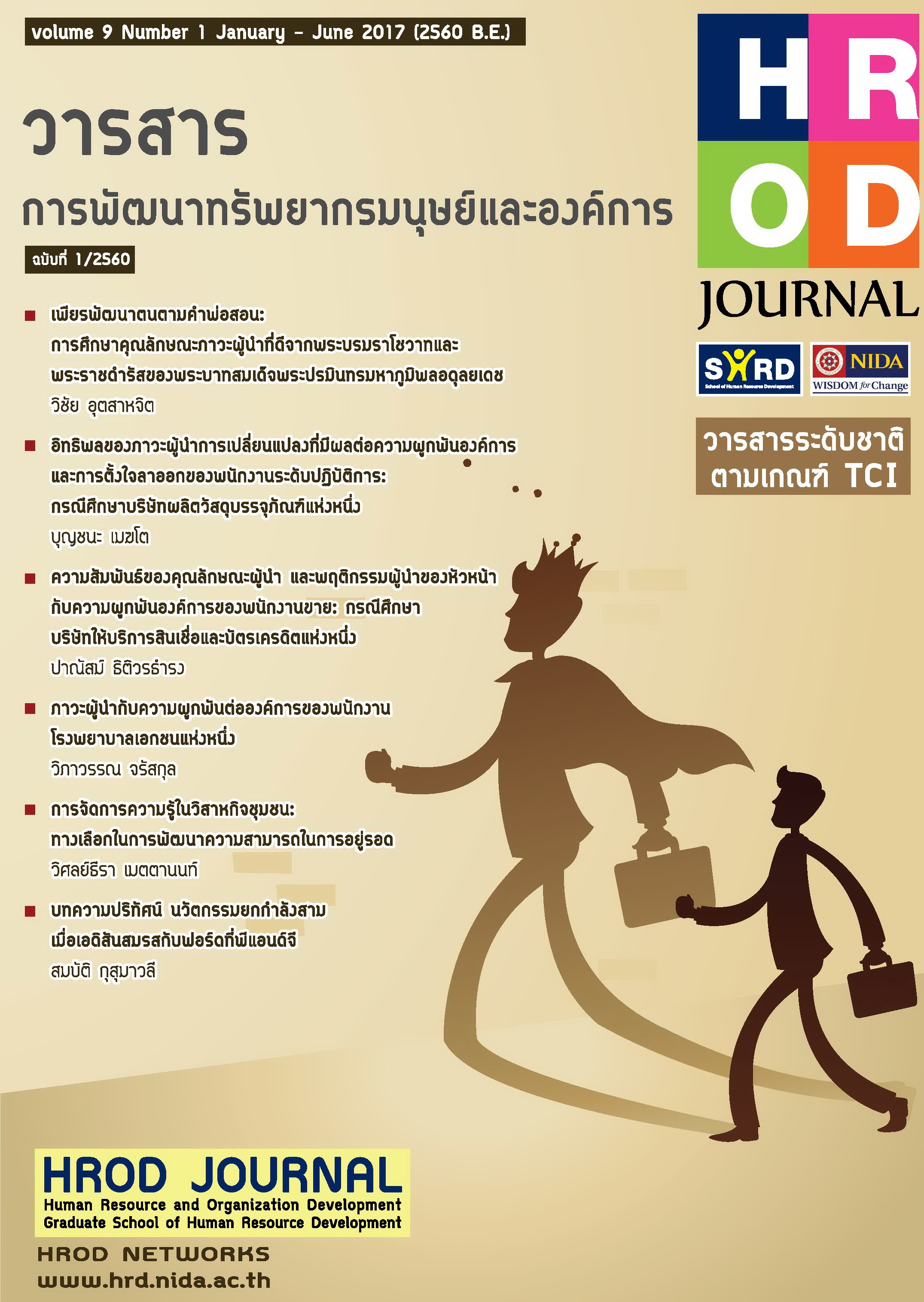Knowledge Management for Business Viability of Community Enterprises
Main Article Content
Abstract
This study is related to the viability and the management of knowledge in community enterprises (CEs). Although CEs contribute to strengthening economic development, preserving local wisdom and culture, and encouraging learning and social development in their communities, some of them cause economic, social and environmental problems to communities. These problems arise from weaknesses in knowledge, thinking and learning, which affect the viability of the CEs. Thus, knowledge management (KM) is the focus for this study because it involves the management of knowledge and learning. It is also considered as a method to support viability, competitiveness and the growth of organizations. The Viable System Model (VSM) is also applied because it is not only a theoretical framework that explains organizational viability and sustainability, but also can strengthen KM implementation by making KM more effective.
This study aims to explore the ways to develop the viability of CEs using KM. To achieve the research aim and objectives, a qualitative approach was employed. Eight CEs from four regions of Thailand were taken as case studies. These case studies were categorized into two groups, consisting of study group and comparison group. Data were collected through semi-structured interviews and participant observation. The computer-aided qualitative data analysis software NVivo was employed to increase the transparency of the data analysis process.
The key findings of this study include identifying the type of knowledge required for CEs’ viability and the ways to manage such knowledge. Moreover, six factors contributing to CEs’ viability are derived from this study’s findings. These factors are leadership, external environment monitoring and preparing for changes (S4 of VSM), networks/connections, continuous learning, continuous knowledge creation, and support from government agencies.
Article Details
1) The content of article in HROD journal is the author’s wholly responsibility to research, analyze, summarize, compile, and reference data. The editorial department will not be responsible in anyway.
2) The submitted articles in HROD journal must be unpublished before and must not be currently under consideration for publication elsewhere. If it is detected for its repetition, the author must be responsible for infringement of copyright.
3) Authors will be asked to transfer copyright of the article to the Publisher. The article is prohibited to reproduce all or part of the text, unless allowed.


